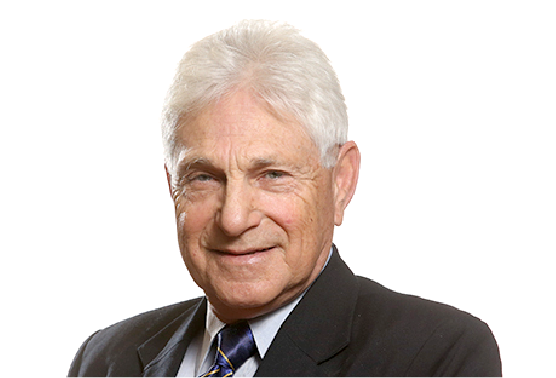CV
Mark A. Heller is a senior researcher (Emeritus) at the Institute for National Security Studies and Non-Resident Scholar at the Middle East Institute, Washington, DC. Dr. Heller received his B.A. in Political Science and Economics at the University of Toronto and did his graduate studies at Harvard University, where he earned an M.A. in Middle Eastern Studies and a Ph.D. in Political Science. Since 1979, he has been affiliated with the Jaffee Center for Strategic Studies (formerly, the Center for Strategic Studies), now incorporated into the Institute for National Security Studies, and he has taught Middle Eastern politics and international relations at Tel Aviv University and at several American universities, including the University of California at San Diego, Cornell University, and Harvard University. He was Coordinator of Research at the Canadian Institute for International Peace and Security in 1991, and has been a visiting research associate at the Center for International Affairs at Harvard, the International Institute for Strategic Studies in London, the Woodrow Wilson Center for International Scholars in Washington, D.C., and the German Institute for International and Security Affairs in Berlin. Dr. Heller has written extensively on Middle Eastern political and strategic issues. His books include A Palestinian State: The Implications for Israel; No Trumpets, No Drums: A Two-State Settlement of the Israeli-Palestinian Conflict (co-authored with Sari Nusseibeh); and Israel and the Palestinians: Israeli Policy Options (co-edited with Rosemary Hollis). Other publications include The Dynamics of Soviet Policy in the Middle East: Between Old Thinking and New; Europe & the Middle East: New Tracks to Peace?; Continuity and Change in Israeli Security Policy (Adelphi Paper No. 335), and The United States and Israel: The Risk of Growing Apart. Other articles and op-eds have appeared in leading professional journals and newspapers in Israel and abroad. For many years, Dr. Heller also served as editor of a variety of Jaffee Center/INSS publications: The Middle East Military Balance, Tel-Aviv Notes, INSS Insight, and Strategic Assessment.

Mark A. Heller
Senior Researcher (Emeritus)
jcssmh@tauex.tau.ac.il
03-640-0407
Publications
All PublicationsConfronting BDS: The Limits of Marketing
Aware that there is little chance of mobilizing decisive international support for the explicit denial of Israel’s rightful existence, BDS activists have instead focused on aspects of Israeli behavior that resonate more strongly in international political discourse: policies in or about the West Bank and Gaza, especially the use of land and other resources for Jewish civilian settlements that seem logically to contradict Israel’s rhetorical commitment to a resolution of the Israeli-Palestinian conflict based on the principle of “two states for two peoples.” By most reasonable standards of judgment, the BDS campaign strategy has been a signal failure.
1 October, 2017Syria and Iraq after the Islamic State
The article addresses the question of the future of Syria and Iraq after the Islamic State is defeated. This question, which has become more trenchant following the stepped up military effort to conquer the Islamic State’s strongholds in the second half of 2016, is given a mixed answer: the concrete materialization of the Salafi jihadist idea, i.e., the organization’s territorial base, may be defeated, but its historical and religious sources will continue to inspire efforts to realize it anew, and will therefore continue to constitute a threat to countries and societies perceived as its enemy.
30 December, 2016Regional Transformation in the Middle East 2015
The three most noteworthy regional developments in 2015 were the formulation of the nuclear deal (Joint Comprehensive Plan of Action – JCPOA) between Iran and the P5+1, the Saudi military intervention in the Yemeni civil war, and the Russian military intervention in the Syrian civil war. Whatever its implications for Iran’s nuclear program and nuclear proliferation in the Middle East, the nuclear deal also heightened concerns about Iran’s capacity to pursue a hegemonial agenda in the region.
31 December, 2015Between Operation Decisive Storm and an Iranian Nuclear Deal: The Limits of Saudi-Israeli Convergence
It may well be the case that convergent threat assessments do facilitate some covert contact between the security echelons of Israel and some of the Arab states concerned about the shadow of Iranian hegemony, and the potential may exist for expanded ties. But the added value of more intense and/or overt ties is not self-evident, and it could reasonably be argued that the potential benefits to Israel of a real regional approach are too modest to justify the soul-searching and domestic political tensions that would inevitably ensue. Whatever the potential benefits may be, a regional approach cannot be actuated without some tangible Israeli movement on the Palestinian question, or at least some persuasive evidence that the main obstacle to movement is not found on Israeli side. That, however, implies policy changes that the incoming Israeli government shows few signs of contemplating.
10 May, 2015Media
All media To Destroy Hamas, the Regime in Iran Must Fall
16 October, 2023


